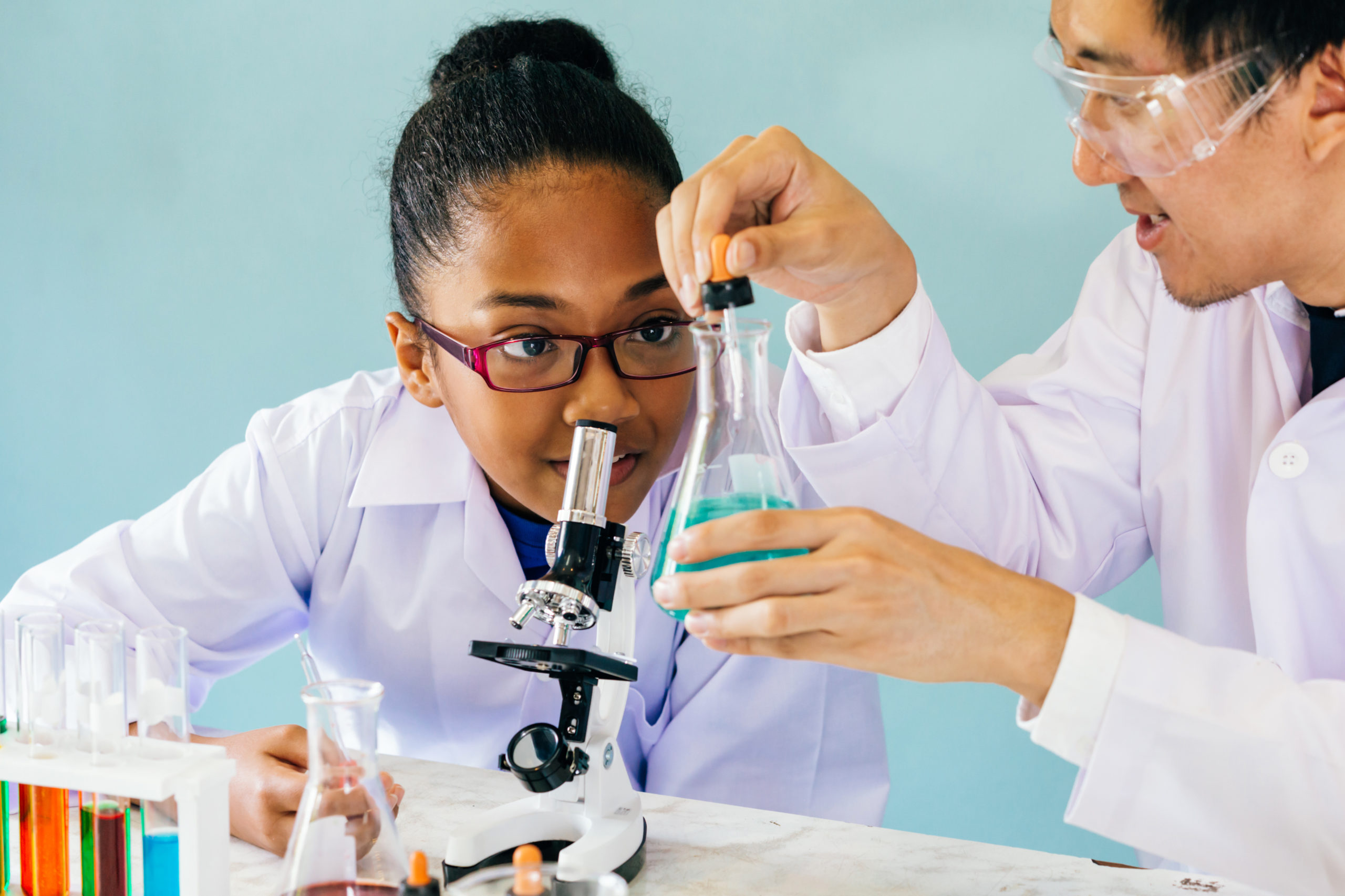For me, Science isn’t just a subject. It is a way of life; it is having an inquisitive mind about the world coupled with using data to better understand life the universe and everything! This means that practical investigations, and Required Practicals at GCSE and A Level, are at the heart of the subject of Science and vital in the school curriculum.
Both the GCSE and A-level Science specifications were reformed in 2016 and 2015 respectively after a consultation period. The assessment of these courses moved from having controlled assessment and examination to being terminal examinations only. It was hoped that this change would remove the narrow focus on time consuming repetitive practicals and give students more of a range of practical experience.
How are the Required Practicals assessed?
For GCSE, OFQUAL identified 8 practical per single science GCSE and 16 practicals that all combined science candidates must have experience of in the GCSE Sciences, across all the English examination boards. These practicals give candidates a number of key skills and experiences in the laboratory setting with at least 15% of their written examinations testing this aspect of their learning. In addition, the experiments are likely to be familiar with science teachers and much of the equipment already available in a school setting.
In A-level, candidates also have required practicals and these too are assessed in the written exam papers. However, candidates can complete the course and get just a grade, or keep a laboratory note book that is Common Practical Assessment Criteria (CPAC) assessed by teachers and gain practical endorsement alongside their A-level grade.
Why are Required Practicals important?
According to Gatsby Charitable Foundation, practical science is important for learning, not only because doing experiments is a good way to learn scientific ideas and theories. They go on to say that practical work engages students to follow science further, on academic or technical routes, and gives them practical skills and attitudes that will be valuable in their future careers.
Sam Holyman is Second in Science at Aylesford School in Warwick, and formerly West Midlands ASE President. She is also the author of a number of best-selling science textbooks for KS3 and GCSE, and a keen advocate of innovative teaching and learning.
Sam was nominated in the Teacher Scientist category for the Science Council’s 100 leading practising scientists, is a Chartered Science Teacher, and has recently been awarded the Lead Facilitator CPD
Scientific exploration, curiosity and asking questions is at the heart of Oxford Smart Activate, a complete Key Stage 3 science curriculum, informed by research and you. With Oxford Smart Activate, you are fully supported to deliver a Key Stage 3 science experience that connects to your students lived experiences. One that nurtures students, builds skills and knowledge, and carries that curiosity through to GCSE.
Further reading:
- ‘Smoothing the transition to secondary school in a pandemic year‘ by Sam Holyman
- ‘Helping students boost their motivation through online learning‘ by Sam Holyman


